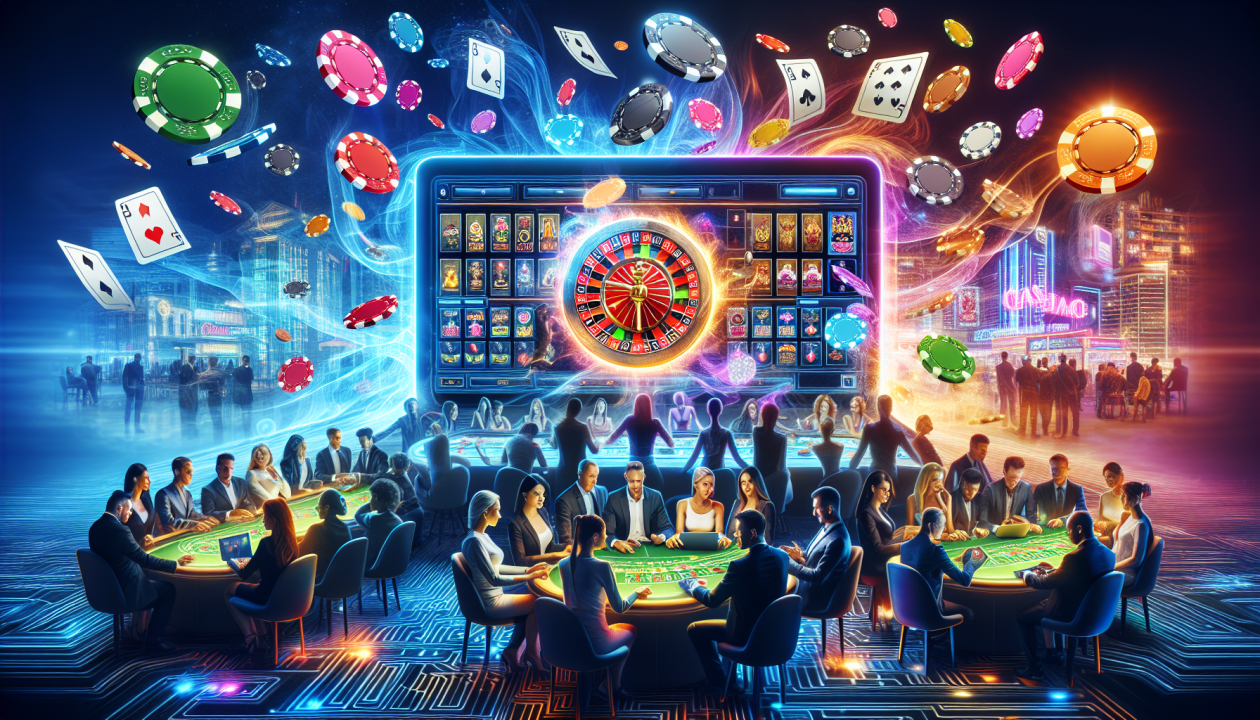Casinos have long held a magnetic allure for those seeking excitement, wealth, and an escape from the ordinary. They are more than just places where people try their luck at games of chance; they are cultural and social phenomena that embody a rich history of entertainment, innovation, and sometimes controversy. From their origins in ancient civilizations to their modern-day incarnations, alexistogel reflect the evolving dynamics of human behavior, economy, and social interaction.
The Historical Evolution of Casinos
The concept of gambling has ancient roots, with evidence of games of chance dating back thousands of years. The word “casino” itself comes from the Italian word for “little house,” reflecting its humble beginnings as small gambling establishments. The earliest known casinos appeared in 17th-century Venice, where patrons gathered to play games of chance in private clubs known as “ridotti.”
Over the centuries, the casino evolved from these early Italian venues to the grand establishments we see today. The iconic Casino de Monte-Carlo, opened in 1863, played a pivotal role in transforming the casino into a luxurious destination. Its success established the model for modern casinos, which blend high-stakes gambling with opulent surroundings.
Casino Architecture and Design: A World of Its Own
One of the most striking features of modern casinos is their architecture and design. These establishments are often designed to create an immersive experience that keeps patrons engaged. The layout is meticulously planned to ensure a continuous flow of visitors through various gaming areas, bars, restaurants, and entertainment venues.
Casinos frequently use elaborate themes and decor to enhance the ambiance. From the Egyptian grandeur of Caesars Palace in Las Vegas to the sleek, futuristic design of Marina Bay Sands in Singapore, each casino creates a unique environment that appeals to its target demographic. The absence of clocks and windows is a deliberate design choice, aiming to create a sense of timelessness and remove the awareness of the outside world.
The Social and Cultural Impact of Casinos
Casinos have a profound impact on the local culture and economy of their locations. They are often integral to tourism, attracting visitors from around the globe and generating significant revenue for local economies. Cities like Las Vegas and Macau have become synonymous with casino culture, with their economies heavily reliant on the gambling industry.
Beyond their economic impact, casinos also contribute to the cultural landscape. They have inspired countless films, novels, and television shows, portraying both the glamour and the risks associated with gambling. The casino’s role in popular culture reflects a fascination with the interplay between chance and human behavior.
The Psychology of Gambling: Luck, Skill, and Addiction
The psychology behind gambling is a complex and multifaceted subject. On one hand, games like poker and blackjack involve skill and strategy, where players can influence outcomes through their decisions. On the other hand, games like roulette and slot machines rely entirely on chance.
The allure of gambling often stems from the possibility of winning big, which can create a powerful psychological reward. However, this potential for reward is accompanied by the risk of addiction. Problem gambling can have severe consequences for individuals and their families, leading to financial difficulties and emotional distress.
Modern casinos are increasingly aware of these risks and have implemented various measures to promote responsible gambling. Many casinos offer self-exclusion programs, provide information on gambling addiction, and engage in community outreach to mitigate the negative impacts of gambling.
The Future of Casinos: Innovations and Trends
As technology continues to advance, the casino industry is evolving rapidly. Online casinos and mobile gaming have transformed the way people experience gambling, offering convenience and accessibility that traditional brick-and-mortar casinos cannot match. Virtual reality (VR) and augmented reality (AR) are emerging trends, promising to create even more immersive and interactive gambling experiences.
